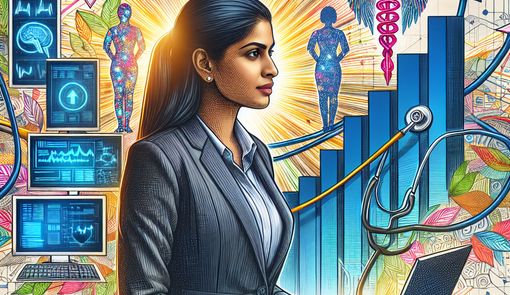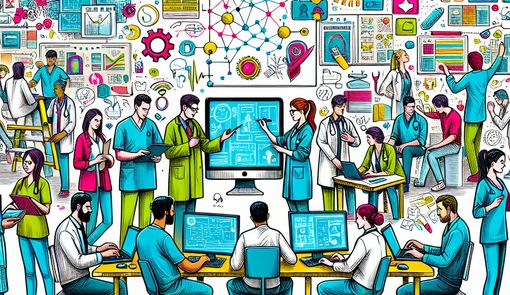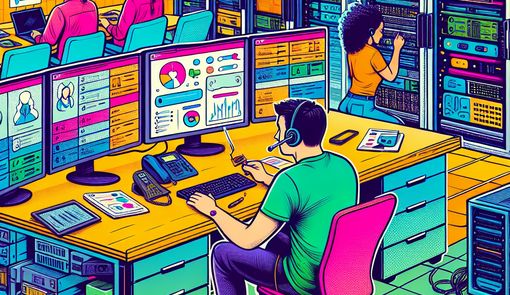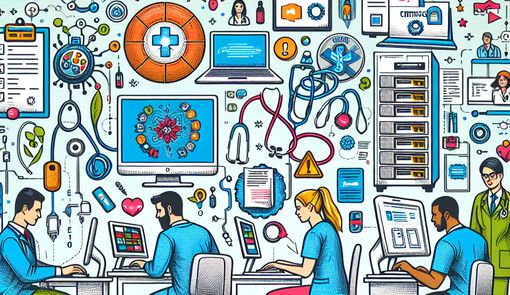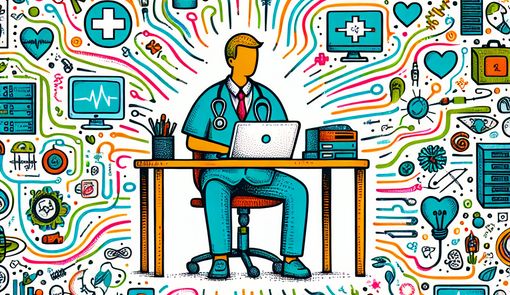Emerging Trends in Healthcare IT Support
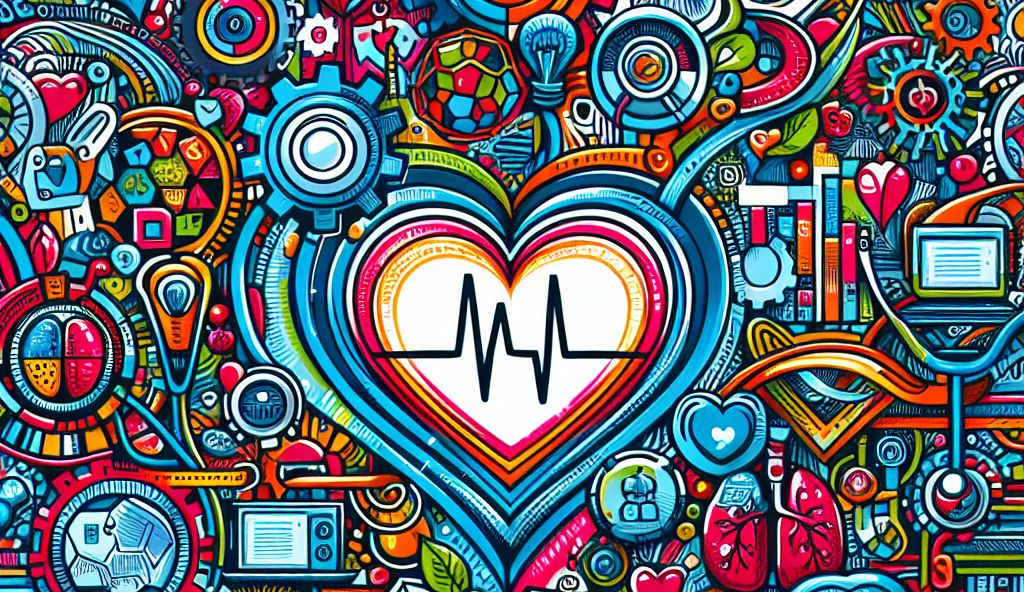
The healthcare industry is on the cusp of a revolution, driven by the rapid advancement of technology. Information Technology (IT) is no longer just a support function; it has become a vital component of healthcare delivery. As we step into the future, several emerging trends are set to reshape the way IT underpins the healthcare sector. The interplay between technology and healthcare is leading to more sophisticated, efficient, and personalized medical care. Here we explore the latest trends in Healthcare IT Support that are shaping the future of the sector.
Artificial Intelligence and Machine Learning
AI and Machine Learning (ML) are the pinnacles of modern technology and their applications in healthcare IT are nothing short of a paradigm shift. From diagnostics to predictive analytics, AI is helping providers make more informed decisions. With machine learning algorithms, electronic health records (EHR) become not just repositories of information, but powerful tools capable of revealing insights about patient health trends, potential outbreaks, and treatment outcomes. AI-driven chatbots and virtual health assistants are providing 24/7 support to patients and easing the burden on human staff.
Telemedicine and Telehealth
The rise of telemedicine has been one of the most significant changes in healthcare IT. Amidst global health crises, telemedicine has been a lifeline, ensuring continuous care while reducing the risk of contagion. It has also significantly increased access to healthcare, particularly in remote and underserved areas. With high-quality video conferencing, remote monitoring, and digital consultation platforms, healthcare providers can offer real-time services to patients at a distance.
Cloud Computing
Cloud computing has offered a new level of flexibility and scalability in healthcare IT. It allows for the secure sharing of patient data between providers, enhancing collaboration and care coordination. Health records stored in the cloud can be accessed from anywhere, improving response times and patient outcomes. Moreover, the cloud enables big data analytics, which is imperative in deriving actionable insights for better healthcare provision.
Cybersecurity in Healthcare
As healthcare IT evolves, so does the need for robust cybersecurity measures. Health data is extremely sensitive and a prime target for cyber-attacks. The industry is responding with advanced security protocols, employee training programs, and intrusion detection systems to safeguard patient information. Compliance with regulations like HIPAA in the US is not only a legal imperative but also a trust-building measure with patients.
Internet of Things (IoT)
IoT is transforming healthcare IT support by streamlining operations and enhancing patient care. Connected devices such as wearable health monitors and smart sensors in hospitals are generating a wealth of data that is used to improve patient outcomes. The real-time data collection enables proactive healthcare management, timely interventions, and continuous monitoring without the need for in-person visits.
Personalized Medicine
Healthcare IT is paving the way for personalized medicine, where treatments and medications are tailored to the individual genetic profile of the patient. With IT support, the vast amounts of genomic data needed for personalized care are becoming manageable and actionable. Advanced computing power and algorithms are analyzing genetic information to identify the most effective treatment options for individual patients.
Interoperability and Data Integration
Interoperability remains a significant challenge in healthcare IT, but strides are being made to ensure different systems can communicate seamlessly. Data integration tools and standardized electronic data exchange formats are improving the ability to share and use health information across various platforms. This trend is crucial for the delivery of coordinated and efficient healthcare.
Mobile Health (mHealth)
Mobile health applications provide unprecedented access to health services and information. From appointment scheduling to medication adherence, mHealth apps are empowering patients to take an active role in their healthcare. Healthcare providers are also using these apps to streamline processes, check patient health data on the go, and improve communication with patients.
Conclusion
Healthcare IT support is an area ripe with innovation, playing a critical role in shaping the future of healthcare. The trends highlighted represent an intersection of technology and patient care that promises to enhance the quality, efficiency, and personalization of healthcare services. As the healthcare industry continues to evolve, staying ahead of these trends will be imperative for providers aiming to deliver the best patient outcomes and secure their position in the market.
Frequently Asked Questions
1. What are the key benefits of AI and Machine Learning in healthcare IT support?
AI and Machine Learning bring several benefits to healthcare IT support. These technologies enable more accurate diagnostics, predictive analytics for patient outcomes, personalized treatment plans, and 24/7 support through virtual assistants. By harnessing AI and Machine Learning, healthcare providers can improve efficiency, reduce errors, and enhance patient care.
2. How has telemedicine revolutionized the healthcare industry?
Telemedicine has revolutionized the healthcare industry by enabling remote consultations, continuous care during global health crises, and increased access to healthcare services, especially in underserved areas. Through high-quality video conferencing and remote monitoring, healthcare providers can offer real-time care to patients, improving convenience and accessibility.
3. What role does cloud computing play in healthcare IT?
Cloud computing in healthcare IT offers flexibility, scalability, and secure data sharing among providers. It enhances care coordination, enables access to health records from anywhere, and facilitates big data analytics for actionable insights. The cloud infrastructure in healthcare not only improves response times but also enhances collaboration and data management.
4. Why is cybersecurity crucial in healthcare IT?
Cybersecurity is crucial in healthcare IT to protect sensitive health data from cyber threats and breaches. With advanced security measures, employee training programs, and compliance with regulations like HIPAA, healthcare providers safeguard patient information and build trust with patients. Strong cybersecurity practices ensure the confidentiality and integrity of patient records.
5. How does the Internet of Things (IoT) impact healthcare IT support?
IoT in healthcare IT support streamlines operations, enhances patient care, and enables continuous monitoring through connected devices and smart sensors. These devices collect real-time data for proactive healthcare management, timely interventions, and remote monitoring without the need for in-person visits. IoT contributes to improved patient outcomes and operational efficiency.
6. What is the significance of personalized medicine in healthcare IT?
Personalized medicine in healthcare IT tailors treatments and medications to individual genetic profiles, optimizing patient care. IT support facilitates the analysis of genomic data for personalized treatment options, leveraging advanced computing power and algorithms for precision medicine. By personalizing care, healthcare providers can enhance treatment effectiveness and patient outcomes.
7. How does interoperability affect healthcare IT systems?
Interoperability is crucial for healthcare IT systems to ensure seamless communication and data exchange across different platforms. By adopting data integration tools and standardized formats, healthcare providers can share and utilize health information efficiently. Improved interoperability enhances care coordination, data management, and overall healthcare delivery.
8. What are the benefits of mobile health (mHealth) applications?
Mobile health applications offer patients convenient access to health services, appointment scheduling, medication adherence support, and health information. These apps empower patients to actively participate in their healthcare journey and provide healthcare providers with mobile tools for efficient communication, data access, and patient monitoring on the go.
Further Resources
For readers interested in delving deeper into the emerging trends in Healthcare IT Support and exploring the intersection of technology and healthcare, the following resources provide valuable insights and information:
- Healthcare IT News: Stay updated on the latest news, trends, and innovations in healthcare IT.
- American Medical Informatics Association: Explore the leading association for informatics professionals in healthcare and biomedical research.
- HealthTech Magazine: Discover in-depth articles on how technology is transforming healthcare delivery.
- Healthcare Information and Management Systems Society (HIMSS): Access resources and insights on healthcare IT, cybersecurity, and digital health.
- Journal of Medical Internet Research: Dive into research articles and studies on the impact of technology on healthcare outcomes.
- Digital Health: Explore digital health news, features, and analysis on the evolving landscape of healthcare technology.
- Agency for Healthcare Research and Quality (AHRQ): Access research findings, tools, and resources to improve healthcare quality and safety through IT.
- Healthcare Innovation: Stay informed on healthcare technology trends, strategies, and best practices.
- Center for Connected Health Policy: Learn about telehealth policy and the regulatory environment shaping digital health services.
- International Medical Informatics Association (IMIA): Explore global perspectives on informatics in healthcare and the latest research advances.
These resources offer a wealth of knowledge for those keen on understanding the dynamic landscape of Healthcare IT Support and the transformative effects of technology in the healthcare industry.

